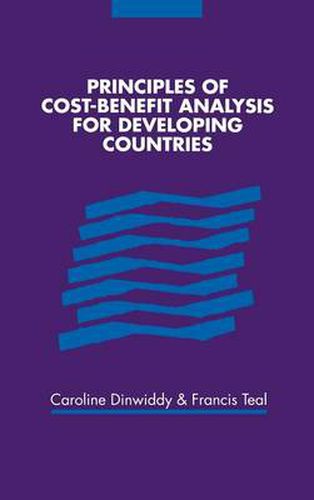Readings Newsletter
Become a Readings Member to make your shopping experience even easier.
Sign in or sign up for free!
You’re not far away from qualifying for FREE standard shipping within Australia
You’ve qualified for FREE standard shipping within Australia
The cart is loading…






In one distinctive book the authors combine an introduction to welfare economics, a discussion of project appraisal principles in developing countries and a survey of the cost-benefit problems raised by externalities, risk and the environment. There are references throughout to contemporary research work in developing economics, and a number of important development policy issues, such as trade reform, commodity price stabilization and the rate of exploitation of natural resources, are considered within a unified cost-benefit framework. A particular feature is the use at an elementary level of general equilibrium models which extend the analysis beyond the limits of the well known partial measures of producer and consumer surplus. The book is primarily intended for courses in development economics, but will also be of interest to students of public policy, both in teaching and administration.
$9.00 standard shipping within Australia
FREE standard shipping within Australia for orders over $100.00
Express & International shipping calculated at checkout
In one distinctive book the authors combine an introduction to welfare economics, a discussion of project appraisal principles in developing countries and a survey of the cost-benefit problems raised by externalities, risk and the environment. There are references throughout to contemporary research work in developing economics, and a number of important development policy issues, such as trade reform, commodity price stabilization and the rate of exploitation of natural resources, are considered within a unified cost-benefit framework. A particular feature is the use at an elementary level of general equilibrium models which extend the analysis beyond the limits of the well known partial measures of producer and consumer surplus. The book is primarily intended for courses in development economics, but will also be of interest to students of public policy, both in teaching and administration.